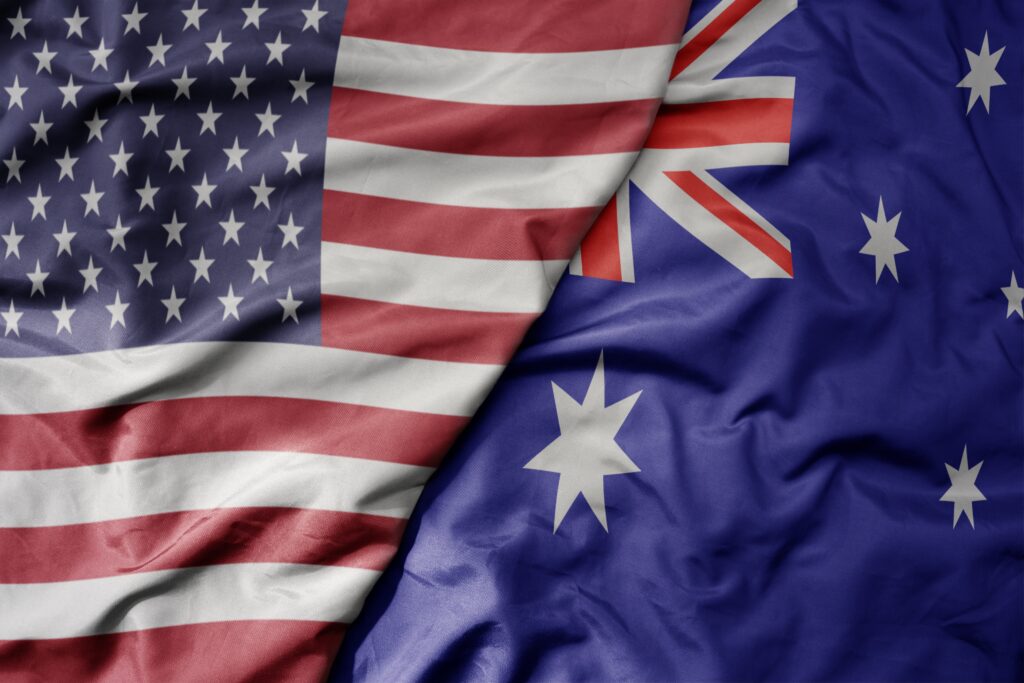The campaigning is over, the votes have been cast, and the results are in—Donald Trump has won the race to become President of the United States of America (USA). On the 20th of January 2025, Donald Trump will be sworn into office for his second term in the White House. The USA is a global powerhouse, and its internal changes can greatly affect the political and economic landscape of other countries, including Australia. Read on to learn how the US election could send waves across the ocean and what that means for us down under.
1. The US-Australia economic relationship
The US is a major trade partner for Australia, with the Australia-US Free Trade Agreement (AUSFTA) underpinning a close economic relationship since 2005. The US is Australia’s fifth-largest export market and its second-largest import market.
Donald Trump’s administration will likely focus on increased tariffs, tax cuts, and deregulation. This potentially means:
A stronger US dollar: Australian exports become more expensive, Australian competitiveness in the global market decreases, and a possible weaker exchange rate (travel becomes more expensive—you might need to budget carefully for that trendy US trip you were planning).
High tariffs on imports: A tariff is a type of tax designed to protect domestic jobs and industry. High tariffs could create global trade tensions, reducing demand for goods traded in US dollars, including many Australian exports like minerals, agricultural products, and energy resources.
2. The US-Australia-China triangle
Do you have friends who just don’t seem to get along? Australia relies on China as a top trade partner but also has a strong alliance with the US. Unfortunately, these two don’t always see eye-to-eye.
Donald Trump’s tough stance on China could force Australia to balance some competing interests. This might mean:
- Less trade stability
- Changes to international travel, visas, policies, and protocols for students living internationally.
3. Security concerns and playground politics
Australia and the US run in the same clubs—think AUKUS (a partnership with the UK and the US) or The Quad (a diplomatic partnership with India, Japan, and the US).
Donald Trump tends to have a more transactional view of alliances, which could mean unreliable support from the US in times of geopolitical pressure. This may mean an opportunity for Australia to foster new diplomatic relationships and strategic unions.
4. Energy and climate initiatives
Australia has seen a recent push towards renewable energy with aims to bolster a strong domestic market.
Donald Trump’s deregulatory stance and intention to shift away from climate cooperation could complicate global progress towards fighting climate change. It may even influence Australia’s energy and climate policies. This could also provide an opportunity for Australia to adopt global leadership on this important issue.
Donald Trump’s return to the White House presents complex challenges in Australia’s future, as it aims to strengthen ties with the US while protecting its own economic and diplomatic interests on a global stage.





